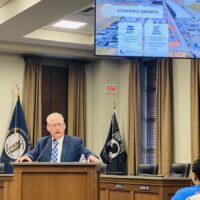Not quite three years ago, when Wendell Lynch recited the oath of office to become Hopkinsville’s interim mayor, a few hundred family members, friends and city officials were present for the ceremony at the Memorial Building.
Lynch, who was city council’s unanimous choice for interim mayor after Carter Hendricks left office early, didn’t tell the audience about something that was on his mind.
But at another gathering Sunday afternoon at the Bruce Convention Center to applaud Lynch’s accomplishments as he prepares to leave office, he thought the time was right to say what he had held back in early 2020.
“I need to share something with you I’ve been holding for 50 years,” he said.
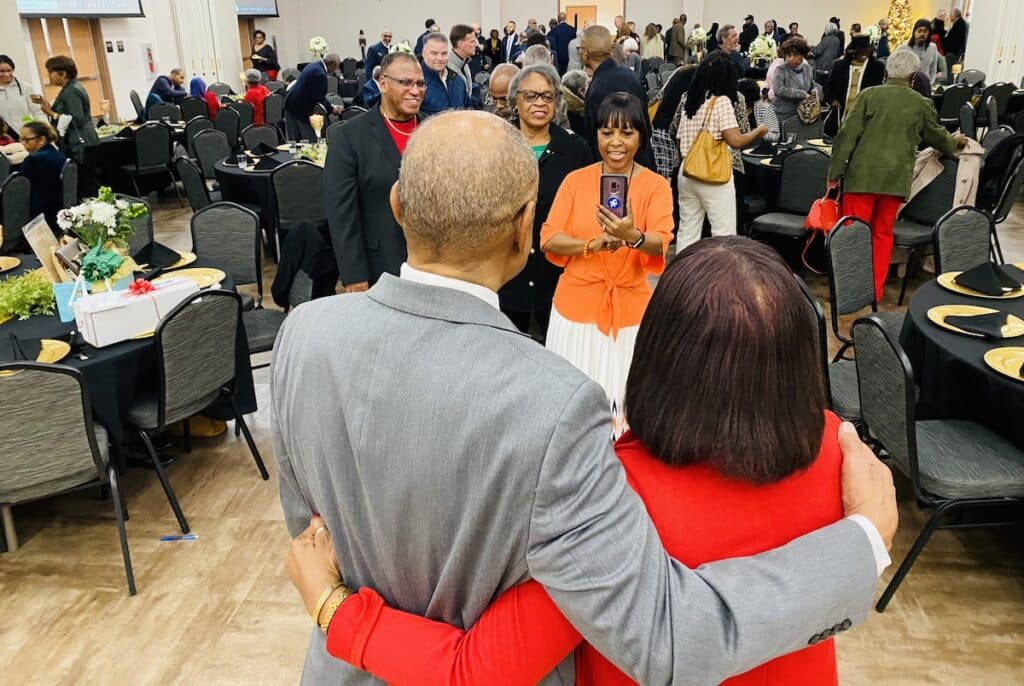
He described a call home to Hopkinsville in the spring of 1972, when he was a student at Phillips University in Enid, Oklahoma. It was a weekly ritual to make a collect call and check in with his family. Most calls ended with his mother, Virginia Lynch, taking the line. That day he sensed something was wrong. His mother evaded his concern until he asked again.
“She began to share a story with me about a sequence of events that happened regarding city council and Mr. F.E. Whitney. You all know the story,” he said.
Whitney, a real estate agent and tax preparer, had been on city council for nearly 20 years. He was a key leader in the Black community. In 1972, he was also the mayor pro tem, a position held by one council member who would fill in whenever the mayor wasn’t present.
So when a vacancy arose in the mayor’s office that year, Whitney as an experienced council member wanted to be considered for the interim appointment. But few of his fellow council members agreed. Instead they chose a young businessman, George L. Atkins Jr., by a vote of 10-to-2.
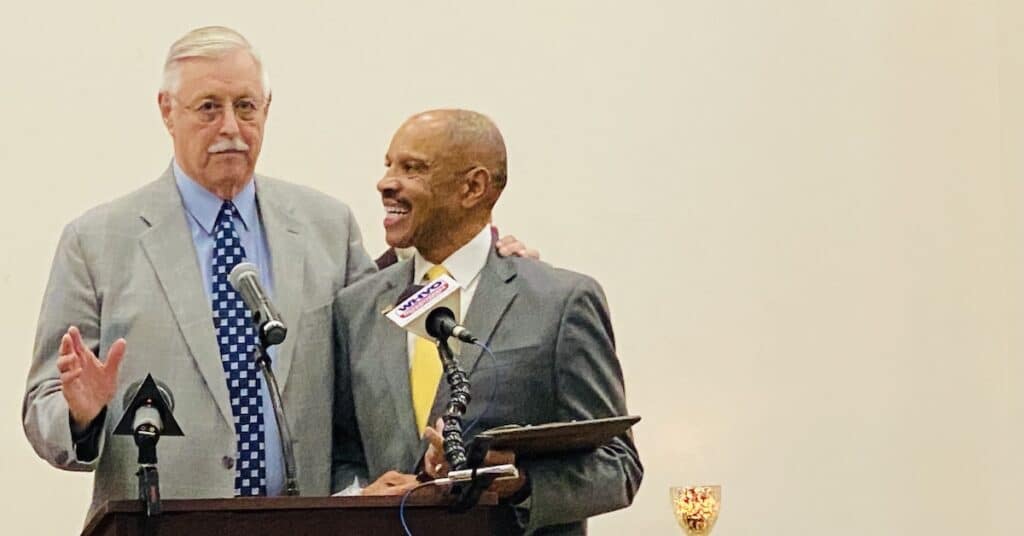
Three decades later, that episode in city government was reexamined in the book “Been Coming Through Some Hard Times: Race, History and Memory in Western Kentucky,” by Oberlin College anthropology professor Jack Glazier. Whitney, interviewed several years before his death in 2006, told Glazier that most council members thought he wasn’t qualified because he was not white.
Lynch recalled the impression the slight against Whitney made on his mother.
“That was a time when the community was much divided, and I asked her, ‘How do you feel?’” he told Sunday’s gathering.
“She said, ‘Well, baby, I really think it set our community back 50 years.’”
Virginia Lynch died in 1985, but her son thinks “someway, somehow” she knew about the historic turn of events with his appointment in 2020. Wendell Lynch was the first Black resident appointed to the mayor’s office and the first to be elected mayor. A retired bank executive, he was serving on city council when his colleagues tapped him to advance to the mayor’s office. He is a Hopkinsville native.
“I shared that story with you to say this: That was then and this is now,” Lynch said, prompting applause from the audience.
“We are in such a good spot, a good place. I am so proud of this community,” he said.
Lynch, a Democrat, will be followed in office by Republican James R. Knight Jr. — and for the first time in the city’s history, all 12 council seats will be held by Republicans.
But Lynch pledged to support Knight’s administration and asked others to do the same.
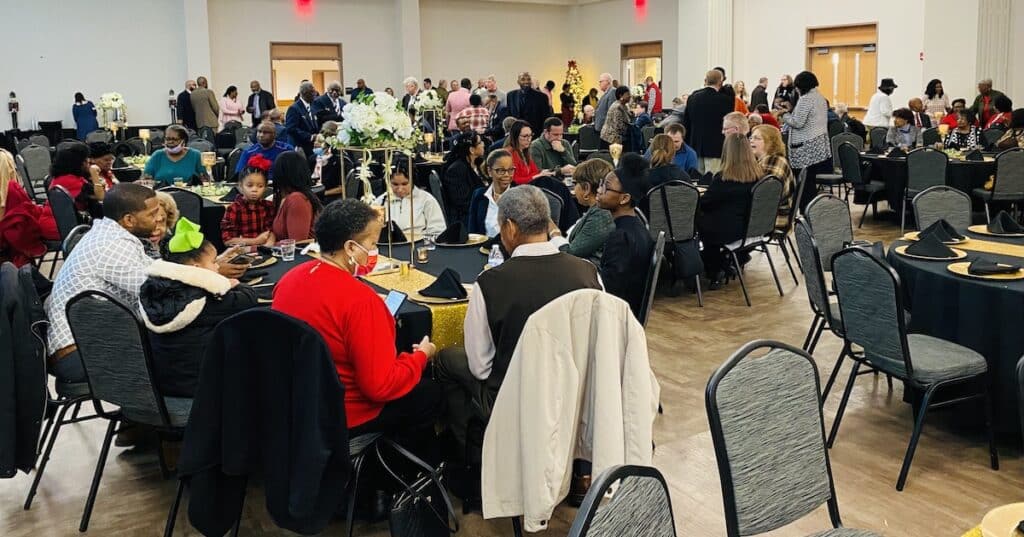
On a lighter note, Lynch drew laughter when he said he won’t tell anyone what he plans to do after leaving city hall. But he confirmed to Hoptown Chronicle he is considering a cross-country bicycle ride. He has been a bike enthusiast for several years.
Hopkinsville Parks and Recreation Superintendent Tab Brockman served as emcee for Sunday’s program. He said Lynch was the right man at the right time for the mayor’s post when it became vacant. After serving 10 months as the interim mayor, Lynch ran in the November 2020 special election to complete the two years remaining in Hendricks’ term and defeated Knight by 6,848 to 5,281 votes. Lynch did not seek reelection this year.
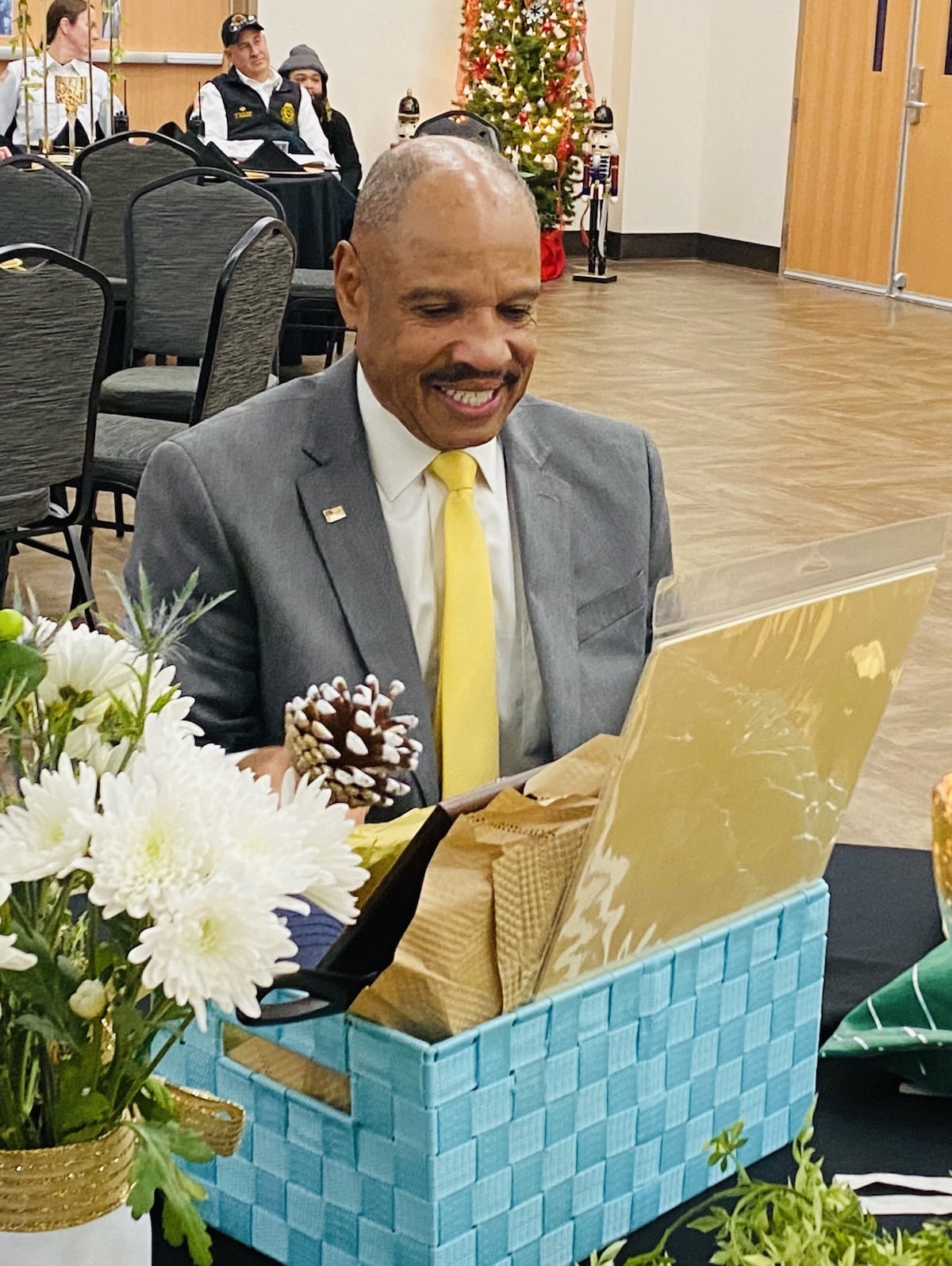
Christian County Judge-Executive Steve Tribble presented a key to the county to Lynch. Tribble, a Democrat, is serving his last month in office following a loss in the November general election to Republican Jerry Gilliam. He has been the judge-executive since 1994.
In a press release that announced the reception for Lynch, city officials cited several accomplishments during his three years in office. These included designating resources to fund a future fire station, investing $5.74 million in capital improvements and promoting “community engagement and transparency.” The city’s cash reserves grew from $4.95 million to $14.2 million during his tenure. Lynch also “compassionately and resiliently” led city government during the coronavirus pandemic.
In his remarks Sunday, Lynch said he didn’t achieve anything on his own. He credited the roughly 300 city employees, saying, “They have made me and this city shine.”
Lynch also singled out his family, including his wife, Bonnie, for supporting him and thanked his pastor, the Rev. Dr. Mitchell O. Fort of Virginia Street Baptist Church.
Jennifer P. Brown is co-founder, publisher and editor of Hoptown Chronicle. You can reach her at editor@hoptownchronicle.org. Brown was a reporter and editor at the Kentucky New Era, where she worked for 30 years. She is a co-chair of the national advisory board to the Institute for Rural Journalism and Community Issues, governing board past president for the Kentucky Historical Society, and co-founder of the Kentucky Open Government Coalition. She serves on the Hopkinsville History Foundation's board.


